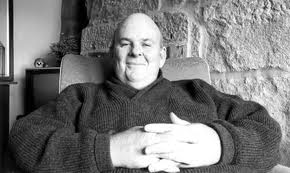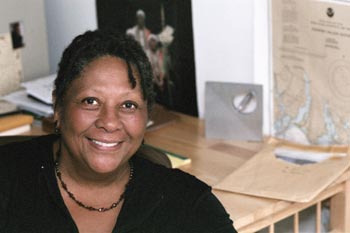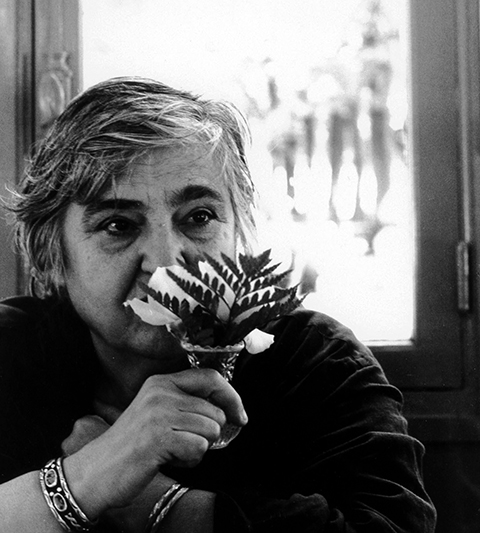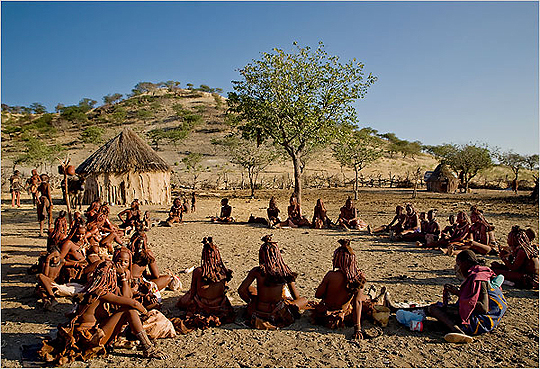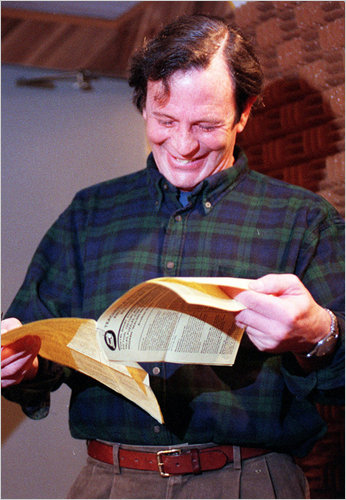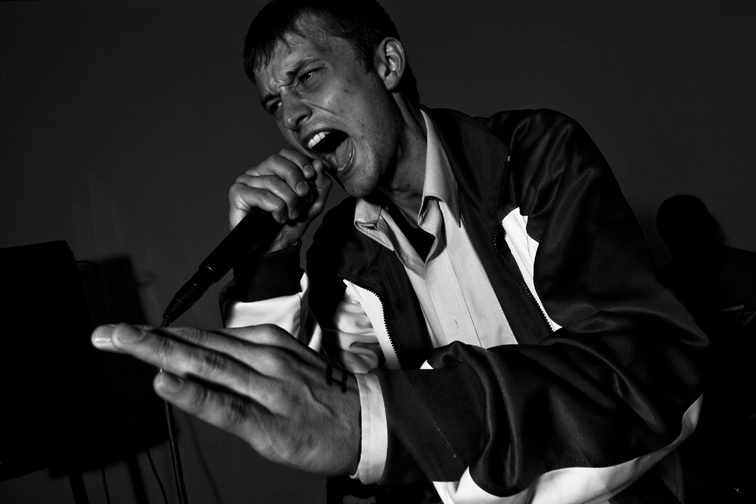POETRY MONTH 30/30/30: Inspiration, Community, Tradition: DAY 17:: Jim Lounsbury on Les Murray
 POETRY : A DREAM SEA OF WORDS by Jim Lounsbury
About ten years ago, I stumbled into a heated debate with a filmmaker friend about whether words or imagery was a more effective way to convey emotion. I argued the case for words, and he took the side of imagery. As the disagreement escalated to a passionate squabble and then to a stamp your feet and beat on your chest free-for-all, I began to wonder what gave me such a strong opinion on the issue. We were both filmmakers. We were both avid photographers. We were both working in the visual arts. What then, was my problem with accepting the visual medium as the superior art form? At the end of the night, we agreed to disagree, and I left, still confused about why I was so confident in the power of words.
Of course, my affinity for words could be biological. My internal chemistry set might not react to imagery as powerfully as it does to a well placed noun, but I wasn't going to let myself off the hook that easily. Over the course of many months, my thoughts often returned to this argument until a plausible explanation finally struck me a few weeks later. Imagery was powerful at evoking emotion, but words have the ability to surgically cut to the bone and identify a precise emotion.
POETRY : A DREAM SEA OF WORDS by Jim Lounsbury
About ten years ago, I stumbled into a heated debate with a filmmaker friend about whether words or imagery was a more effective way to convey emotion. I argued the case for words, and he took the side of imagery. As the disagreement escalated to a passionate squabble and then to a stamp your feet and beat on your chest free-for-all, I began to wonder what gave me such a strong opinion on the issue. We were both filmmakers. We were both avid photographers. We were both working in the visual arts. What then, was my problem with accepting the visual medium as the superior art form? At the end of the night, we agreed to disagree, and I left, still confused about why I was so confident in the power of words.
Of course, my affinity for words could be biological. My internal chemistry set might not react to imagery as powerfully as it does to a well placed noun, but I wasn't going to let myself off the hook that easily. Over the course of many months, my thoughts often returned to this argument until a plausible explanation finally struck me a few weeks later. Imagery was powerful at evoking emotion, but words have the ability to surgically cut to the bone and identify a precise emotion.
POETRY MONTH 30/30/30: Inspiration, Community, Tradition: DAY 16:: Karen Clark on Marilyn Nelson
 I want to talk about the work of Marilyn Nelson, whose poems fill me with the same mixture of awe, reverence and exultation that I experienced last month standing in the Philadelphia Museum of Art in front of the Van Gogh exhibition. It is the sense of privilege at having witnessed this miracle: that it is possible to take suffering, pain, and man’s brutal inhumanity to man and transform them, through the alchemy of art and genius, into works of sheer glory that become a lifelong blessing to the beholder, comforting us with the knowledge that the pain and the suffering were not wasted, not meaningless, for this beautiful work of art came out of it all, to spread its balm upon the human spirit and remind us that the artist’s sacred mission is to heal the world. Only recently I was overjoyed to see that Nelson (who has been honored many times for her work) was the 2011 recipient of the Poetry Society of America’s highest honor, the Frost Medal.
I want to talk about the work of Marilyn Nelson, whose poems fill me with the same mixture of awe, reverence and exultation that I experienced last month standing in the Philadelphia Museum of Art in front of the Van Gogh exhibition. It is the sense of privilege at having witnessed this miracle: that it is possible to take suffering, pain, and man’s brutal inhumanity to man and transform them, through the alchemy of art and genius, into works of sheer glory that become a lifelong blessing to the beholder, comforting us with the knowledge that the pain and the suffering were not wasted, not meaningless, for this beautiful work of art came out of it all, to spread its balm upon the human spirit and remind us that the artist’s sacred mission is to heal the world. Only recently I was overjoyed to see that Nelson (who has been honored many times for her work) was the 2011 recipient of the Poetry Society of America’s highest honor, the Frost Medal.
POETRY MONTH: 30/30/30: Inspiration, Community, Tradition: DAY 12 :: Frank Sherlock on Etel Adnan
 Etel Adnan was born in 1925 in Beirut, Lebanon. Her father was a Syrian Muslim and her mother was a Greek Christian. She was raised speaking French, English, and her father taught her written Arabic. Adnan studied philosophy at the Sorbonne, Paris, University of California, Berkeley, and Harvard. She has many books of poetry and fiction published, including Paris When It's Naked, Of Cities and Women, and Sitt Marie Rose, which has been translated into over ten languages and is considered a classic of Middle Eastern literature. She also creates oils, ceramics and tapestry.
“A life spent writing has taught me to be wary of words. Those that seem clearest are often the most treacherous.” So begins Amin Malouf's In the Name of Identity: Violence and the Need to Belong. [Ed: free e-book/pdf at link] As words are navigated into the public sphere, to be watchful requires an interrogation of language, conscious of its make up and observant of mutations as it travels across borders and time.
Etel Adnan was born in 1925 in Beirut, Lebanon. Her father was a Syrian Muslim and her mother was a Greek Christian. She was raised speaking French, English, and her father taught her written Arabic. Adnan studied philosophy at the Sorbonne, Paris, University of California, Berkeley, and Harvard. She has many books of poetry and fiction published, including Paris When It's Naked, Of Cities and Women, and Sitt Marie Rose, which has been translated into over ten languages and is considered a classic of Middle Eastern literature. She also creates oils, ceramics and tapestry.
“A life spent writing has taught me to be wary of words. Those that seem clearest are often the most treacherous.” So begins Amin Malouf's In the Name of Identity: Violence and the Need to Belong. [Ed: free e-book/pdf at link] As words are navigated into the public sphere, to be watchful requires an interrogation of language, conscious of its make up and observant of mutations as it travels across borders and time.
POETRY MONTH 30/30/30: Inspiration, Community, Tradition: Day 11 :: Pamela Laskin on Samantha Reiser
 I have been enormously inspired by the work of my daughter, the poet Samantha Reiser. This might seem like an odd choice, since I am her Mom, and usually it works the other way around. Samantha Reiser recently completed her degree at Harvard College, where she was an English Concentrator. TOMAS SIMON AND OTHER POEMS, her senior thesis, was a finalist for the Yale Younger Poetry Prize for 2012, and her work has been published in SIC, THE ONE THREE EIGHT, LYRE, LYRE and THE J JOURNAL. Her essay, "Namibian Shoes" is included in the anthology, IT'S ALL ABOUT SHOES. She has been a poetry judge for the NYC Poetry Festival for several years, and she volunteers her time as a rape crisis advocate.
[caption id="attachment_601" align="alignright" width="300" caption="World Teach School in Ondangwa, Namibia"]
I have been enormously inspired by the work of my daughter, the poet Samantha Reiser. This might seem like an odd choice, since I am her Mom, and usually it works the other way around. Samantha Reiser recently completed her degree at Harvard College, where she was an English Concentrator. TOMAS SIMON AND OTHER POEMS, her senior thesis, was a finalist for the Yale Younger Poetry Prize for 2012, and her work has been published in SIC, THE ONE THREE EIGHT, LYRE, LYRE and THE J JOURNAL. Her essay, "Namibian Shoes" is included in the anthology, IT'S ALL ABOUT SHOES. She has been a poetry judge for the NYC Poetry Festival for several years, and she volunteers her time as a rape crisis advocate.
[caption id="attachment_601" align="alignright" width="300" caption="World Teach School in Ondangwa, Namibia"] [/caption]
Samantha has opened up the door for me to start thinking of poetry outside of the box of my immediate surroundings. Samantha's poetry lives and breathes in the world, since her concerns are about humanity, social injustice, women's rights, both on a national and international level.
[/caption]
Samantha has opened up the door for me to start thinking of poetry outside of the box of my immediate surroundings. Samantha's poetry lives and breathes in the world, since her concerns are about humanity, social injustice, women's rights, both on a national and international level.
POETRY MONTH 30/30/30 : Inspiration, Community, Tradition : DAY 10 :: Sarah Pinder on Libby Scheier
 I encountered Libby Scheier’s work for the first time in my late teens, when I first moved to Toronto. It was a perfectly synchronous moment – I was so hungry for directness, and Scheier serves it up in spades. I devoured everything of hers I could get my hands on, treating the collections as guidebooks on possible routes to the places I wanted to go in my own work. She wrote so angry, and so tender, and candidly addressed relationships, violence and agency in ways that are paint-strippingly clear.
I encountered Libby Scheier’s work for the first time in my late teens, when I first moved to Toronto. It was a perfectly synchronous moment – I was so hungry for directness, and Scheier serves it up in spades. I devoured everything of hers I could get my hands on, treating the collections as guidebooks on possible routes to the places I wanted to go in my own work. She wrote so angry, and so tender, and candidly addressed relationships, violence and agency in ways that are paint-strippingly clear.
POETRY MONTH 30/30/30: Inspiration, Community, Tradition : DAY 9 :: Maryam Parhizkar on Paul Violi
 In November 2011 H_NGM_N Books reissued In Baltic Circles, Paul Violi's first book of poems, originally published in 1973 by The Kulchur Foundation. This resulted out of funny circumstances: after seeing a review by Matt Hart of his last book, Overnight, in Coldfront Magazine, Violi sent Hart a photocopy of the original book with a handwritten note saying, "I like to think it's not all juvenilia!" In Baltic Circles is hardly that – even as an early book it encompasses so much of Violi's essence. What does that mean? For one, if there were ever code of ethics for the poetic form, you also could count on him to violate it in a poem – and he did so in such an elegant and charming way that you could never hold it against him. This is his edgy cleverness, accompanied by a romantic streak and a surreal awareness of the everyday... They are qualities that also radiated like the sun from his personality.
In November 2011 H_NGM_N Books reissued In Baltic Circles, Paul Violi's first book of poems, originally published in 1973 by The Kulchur Foundation. This resulted out of funny circumstances: after seeing a review by Matt Hart of his last book, Overnight, in Coldfront Magazine, Violi sent Hart a photocopy of the original book with a handwritten note saying, "I like to think it's not all juvenilia!" In Baltic Circles is hardly that – even as an early book it encompasses so much of Violi's essence. What does that mean? For one, if there were ever code of ethics for the poetic form, you also could count on him to violate it in a poem – and he did so in such an elegant and charming way that you could never hold it against him. This is his edgy cleverness, accompanied by a romantic streak and a surreal awareness of the everyday... They are qualities that also radiated like the sun from his personality.
POETRY MONTH 30/30/30 : Community, Inspiration, Tradition :: Day 8: Frank Ortega on Andrew Acciaro
[caption id="attachment_541" align="alignleft" width="142" caption="photo: Howard Goodman"] [/caption]
It's Easter. I don't have any chemically-colored eggs or chocolate that I can offer you here, no old zombie stories, just unnatural spring weather on a planet that has officially had 324 consecutive months of global temperatures exceeding their long-term average for any given month. You can convert that to years, if you're feeling brave. You can pray, if it helps. And you can read poetry.
It's Easter, and before you go searching for new eggs or reborn gods or just plain hope, let me share this living soul, a human deity, whose intelligence and compassion fill me with that hope we are constantly seeking. His name is Andrew Acciaro, and he lives and works near me in Peekskill, next to the Hudson River. Andrew lives and breathes the poetic life, and it is impossible for me to chose even one poem of his to share, as each goes in such different directions, as if Andrew is dipping into the consciousness of all styles, past, present and future to offer vital messages of the now.
[/caption]
It's Easter. I don't have any chemically-colored eggs or chocolate that I can offer you here, no old zombie stories, just unnatural spring weather on a planet that has officially had 324 consecutive months of global temperatures exceeding their long-term average for any given month. You can convert that to years, if you're feeling brave. You can pray, if it helps. And you can read poetry.
It's Easter, and before you go searching for new eggs or reborn gods or just plain hope, let me share this living soul, a human deity, whose intelligence and compassion fill me with that hope we are constantly seeking. His name is Andrew Acciaro, and he lives and works near me in Peekskill, next to the Hudson River. Andrew lives and breathes the poetic life, and it is impossible for me to chose even one poem of his to share, as each goes in such different directions, as if Andrew is dipping into the consciousness of all styles, past, present and future to offer vital messages of the now.
POETRY MONTH 30/30/30 : Inspiration, Community, Tradition : DAY 5 :: Caits Meissner on Adam Falkner
 photo: jonathan weiskopf[/caption]
Adam Falkner is a poet, musician, high school English/Creative Writing teacher and former Michael Jackson dance-off champion – although he will probably deny the latter of those if asked. In addition to being published in anthologies and journals including decomP Magazine, The Esu Review, and The Other Journal, Adam’s poems have also been featured on HBO, BET, Michigan and New York Public Radio and in Time Out New York. He lives and works in Brooklyn.
Succinct Musing from Caits Who is Secretly in Love with Adam, but Only His Brain Because She is Married to Someone Else:
A few short months ago over dinner, I looked at Adam with a suspicious side eye. He appeared a blurry apparition through the candle light, or maybe from the second glass of wine I'd just finished. He was smiling a very nice smile because he is a very nice guy. I was giving him this unusual look because everything he said was eerily familiar. The voice in my head said, Are you me?
photo: jonathan weiskopf[/caption]
Adam Falkner is a poet, musician, high school English/Creative Writing teacher and former Michael Jackson dance-off champion – although he will probably deny the latter of those if asked. In addition to being published in anthologies and journals including decomP Magazine, The Esu Review, and The Other Journal, Adam’s poems have also been featured on HBO, BET, Michigan and New York Public Radio and in Time Out New York. He lives and works in Brooklyn.
Succinct Musing from Caits Who is Secretly in Love with Adam, but Only His Brain Because She is Married to Someone Else:
A few short months ago over dinner, I looked at Adam with a suspicious side eye. He appeared a blurry apparition through the candle light, or maybe from the second glass of wine I'd just finished. He was smiling a very nice smile because he is a very nice guy. I was giving him this unusual look because everything he said was eerily familiar. The voice in my head said, Are you me?

